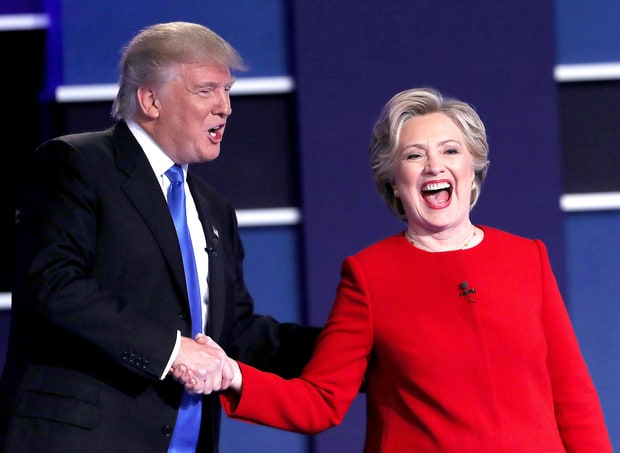By Alex Pinsk || Staff Writer

Last Monday night, September 26, we all watched as Hillary Clinton and Donald Trump faced off during the presidential debate that took place at Hofstra University at 9p.m. EST. Moderated by Lester Holt, anchor for NBC Nightly News, the debate lasted an hour and a half and was split up into six 15-minute pieces. Discussion topics on the table were ‘America’s Direction,’ ‘Achieving Prosperity,’ and ‘Securing America.’
At this point in the election season, generally, people have a pretty good understanding about each candidate’s stance on political issues; we know more or less on what subjects they agree and disagree because we have read articles, watched previous debates, listened to the news, etc. In my opinion, what we look for most in these debates is the characters of the candidates – their attitudes, temperament, the way they respond to their opponent. In other words, we have known Clinton and Trump for so long and are knowledgeable about their policies, but one nasty comment or crude joke can anger us, can often make us consider the other candidate. For example when the two candidates consistently interrupt each other or more significantly when they interrupt the moderator, I think many of us have a lesser opinion of them.
From this debate, we were supposed to learn about each candidate’s stance on improving the US economy and employment, foreign policy, and national security. Arguably, we learned more about the shortcomings of Trump and Clinton according to the each other. To be honest, what stood out most to me was Trump’s comment about how he has “a much better temperament” than Clinton and that his “strongest asset, maybe by far is [his] temperament.” And this has really absolutely nothing to do with political issues. Statistically, although many watch the debate for the purpose of gaining insight into the ideas of each potential candidate, many also watch the debate because they want to bash on the candidates or laugh at them – because more often than not, their bickering is ridiculous and flat out hysterical.
On a different note, many go into the the debate with prior knowledge of who they are going to vote for. They are just watching so that they can look for notions of their candidate that back their argument or claims of the other candidate that they can laugh at. First-year Ally Damante says that debates are “definitely more for entertainment and yelling at the TV screen” than anything else. I agree with this; I think we enjoy the excitement of it all. The on-screen bickering is funny, and it’s enjoyable to watch with someone with whom we can banter.
So, does the debate really impact the outcome of the election? The short answer is that, statistically, it is extremely difficult to figure that out. However, the polls taken after the debate demonstrate that the majority of people, by a small margin, who were unsure who to vote for prior to the debate decided they would vote for Trump. This is interesting when we consider that many news platforms claim that Clinton was actually the winner of the debate. I would say that the debates do not have a huge influence on the outcome of the election, but they are still interesting and funny to watch. Although we do get an idea of the candidate’s characters, I think we often think less of both of them because they are forced to defend themselves, sometimes unsuccessfully, on accusations made against them.
Are the debates informative and useful when considering who to vote for? I encourage you to watch the next debate at Washington University in St. Louis on Sunday, October 9th at 8pm to answer that question for yourself.
First-year Alex Pinsk is a staff writer. Her email is mpinsk@fandm.edu.